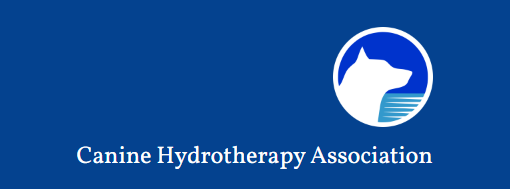Level 3 Certificate in Small Animal Hydrotherapy
MAKE AN ENQUIRY
| Ofqual code | 610/4655/3 |
|---|---|
| Qualification Level | 3 |
| Guided Learning Hours | 330 |
| Estimated Study Time | 360 |
| Enrolment valid for | 24 months |
| Credits | 36 |
| Study mode | Online & Practical |
| Start Date | Anytime |
| Entry Criteria | Learners must be aged 18+ and have experience working with small animals/canines in an employed or voluntary capacity. |
| Practical | This course includes 4 days of practical training at an approved centre. Please note that learners must complete a required number of theory units and pay for their course in full before accessing the practical training. |
| Assessment Method | Internal assessments conducted online at the end of each unit and practical assessments undertaken during the placement. |
| Units | 11 |
| Award type | Certificate |
| Professional Bodies | This qualification is recognised by the Canine Hydrotherapy Association (CHA). |
| Qualification | On successful completion of your studies, your work will be internally verified and then submitted to the Awarding Organisation for external quality assurance assessment. Your Certificate will be issued once this process has been completed. |
Unit 1
Introduction to Small Animal Hydrotherapy
This unit provides Learners with an overview of small animal hydrotherapy. By understanding and managing risks, the Learner will explore the different elements essential to providing safe practice. The unit is not intended to provide Learners with the level of skill and competence required to administer hydrotherapy treatments and Learners should not engage in any manipulation techniques unless qualified to do so. It is always imperative that learners act within their areas of professional competence and personal limitations. This unit is a knowledge-based unit, with no physical requirements.
Unit 2
Small Animal Anatomy and Physiology – Skeletal and Muscular
In this unit, Learners will explore the major elements of small animal structural anatomy essential for the hydrotherapist. To administer hydrotherapy treatment, it is vital that the hydrotherapist has a sound understanding of small animal structural anatomy and how the bones, muscles, tendons and ligaments work together to be able to link this to the individual treatment plan and effectively improve their knowledge of landbased movement and function. This unit is a knowledge-based unit, with no physical requirements.
Unit 3
Small Animal Anatomy and Physiology – Body Systems and Function
In this unit, Learners will explore the major elements of small animal body systems which are essential for the hydrotherapist. To administer hydrotherapy treatment, it is vital that the hydrotherapist has a sound understanding of small animal systems to be able to take account of any clinical precautions in the plan for an individual and to be able to understand how the body systems function and enable movement. This unit is a knowledge-based unit, with no physical requirements.
Unit 4
Common Small Animal Conditions
In this unit, Learners will explore how common small animal conditions and problems may impact on devising an individual hydrotherapy treatment programme. They will learn how to identify common conditions and problems and understand the considerations and management of small animals with specific challenges. The unit is not intended to provide Learners with the level of skill and competence required to diagnose conditions. It is imperative that at all times Learners act within their area of professional competence and personal limitations, seeking veterinary advice as appropriate. This unit is a knowledge-based unit, with no physical requirements.
Unit 5
Small Animal Health Status and First Aid
In this unit, Learners will understand the importance of maintaining the health and welfare of each small animal patient in their care. Learners will be able to undertake health checks essential for safe hydrotherapy practice. Learners will be able to recognise and manage a variety of small animal first aid emergencies. It is always imperative that learners act within their area of professional competence and personal limitations. This is a knowledge and skill-based unit, requiring some physical demonstrations.
Unit 6
Small Animal Assessment Processes
It is a legal requirement for hydrotherapists to have a current referral for each small animal from a registered veterinary surgeon (RVS). Hydrotherapists need to be able to assess risk effectively, including evaluating the small animal patient’s suitability for hydrotherapy. This requires an assessment process to evaluate and provide a safe and beneficial treatment plan using relevant risk assessment skills. This unit will enable the learner to understand the assessment process for safe practice. It is always imperative that learners act within their areas of professional competence and personal limitations. This is a knowledge and skill-based unit, requiring some physical demonstrations.
Unit 7
Practical Administration of Small Animal Hydrotherapy Treatment in the Pool
In this unit, learners are required to prepare the environment and small animal patients for hydrotherapy. Learners will need to demonstrate how to manage a small animal during a hydrotherapy session in the pool to include effective administration of treatment techniques, monitoring and therapeutic interaction for each small animal as appropriate. Learners will consider the importance of appropriate aftercare in relation to advice to the owner, completion of appropriate documentation and record keeping appropriate for each case in the pool. It is imperative that learners act within their professional scope of practice. Learners should not engage in any manipulation techniques unless qualified to do so. This is a knowledge and skill-based unit, requiring some physical demonstrations and 20 hours external practical hours to be completed.
Unit 8
Small Animal Behaviour for Clinical Practice
In this unit, Learners will explore the importance of understanding small animal behaviours in the context of the hydrotherapy setting. By developing effective communication skills with the small animal in a therapeutic setting, the hydrotherapist will develop skills to address the mismatch of communication skill differences between humans and small animals and offer a safer environment to deliver the hydrotherapy treatment. This unit will enable the learner to understand the behaviours seen in a therapeutic setting essential for safe practice. It is always imperative that learners act within their area of professional competence and personal limitations by working within their scope of practice and this does not mean they are behaviourists. This unit is a knowledge-based unit, with no physical requirements.
Unit 9
Introduction to Aquatic Treadmill Practice
In this unit, Learners will understand how to safely use an aquatic treadmill for small animal hydrotherapy. Learners will use the basics of small animal gait analysis before, during and after a hydrotherapy session. This unit will also include the learner administering treatment techniques, monitoring, evaluation, and therapeutic interaction for each small animal as appropriate. Learners will also consider the importance of appropriate aftercare in relation to advice to the owner. It is always imperative that learners act within their professional scope of practice. Learners should not engage in any manipulation techniques unless qualified to do so. Note: Preparation and after care of the small animal for a hydrotherapy treatment session is assessed in the pool unit. This unit is a knowledge and skill-based unit, requiring some physical demonstrations and 10 hours external practical hours to be completed.
Unit 10
Water Management
In this unit, Learners will understand the importance of safe and effective water management for small animal hydrotherapy. Learners will explore the functions of the various pieces of plant and equipment, water chemistry, the relationship of the various chemicals used and management processes essential for safe practice. It is always imperative that learners act within current health and safety legislation and work within their professional scope of practice and understand their limitations. It is expected that learners will undertake the practical elements of this unit under the supervision of an appropriately qualified professional. This is a knowledge and skill-based unit, requiring some physical demonstrations and 5 hours external practical hours to be completed.
Unit 11
Professional and Ethical Practice
In this unit, Learners will explore the importance of professional, ethical and legal responsibilities in their hydrotherapy practice. An effective multidisciplinary team approach to optimise safe hydrotherapy practice is a part of this commitment. Learners are also required to commit to their own continuing professional development as part of their career journey. This unit is a knowledge and skill-based unit, requiring some physical demonstrations.
Course Description:
The Level 3 Certificate in Small Animal Hydrotherapy is designed for individuals with prior experience working with small animals, either in paid or voluntary roles such as animal care assistants or veterinary nurses. This qualification builds on existing knowledge and skills, focusing on the therapeutic benefits of hydrotherapy for canines and other small animals with various conditions. It equips learners with the expertise needed to administer hydrotherapy safely and effectively. The qualification also supports those already working in hydrotherapy by formalising their expertise.
This rigorous course combines theoretical knowledge with practical application, providing a comprehensive foundation in small animal hydrotherapy. The course includes five days of hands-on training to develop the essential skills, knowledge, and professional behaviours required for this specialised field.
Recognised by Ofqual, the course aligns with legislative and industry standards, ensuring practitioners conduct hydrotherapy responsibly and professionally. Additionally, it is endorsed by the Canine Hydrotherapy Association (CHA), affirming its credibility within the sector.
Career Progression
By completing this qualification, learners will gain the skills and knowledge needed to pursue employment in the animal hydrotherapy sector. Some may choose to establish their own hydrotherapy business, while others may opt to advance their expertise by undertaking additional related qualifications.
A day in the life of a Small Animal Hydrotherapist
A day in the life of a small animal hydrotherapist typically involves a mix of hands-on therapy, client communication, and administrative tasks. The day often begins with preparing the hydrotherapy pool or underwater treadmill, ensuring it is clean, at the correct temperature, and ready for sessions.
Throughout the day, the hydrotherapist assesses new patients, reviewing veterinary referrals and discussing the animal’s medical history with owners. During therapy sessions, they guide dogs and small animals through tailored exercises, either swimming in the pool or walking on the treadmill, to target specific rehabilitation or fitness goals. They monitor the animal’s movement, comfort, and response to treatment closely.
Between sessions, there’s time for drying and calming animals, writing progress reports, and updating veterinary professionals as needed. Client education is a key part of the role, as owners often require advice on at-home care or complementary exercises. The day ends with cleaning and maintaining equipment and facilities, ensuring high hygiene standards are met.
While rewarding, the role is physically demanding and emotionally engaging, requiring patience, strong observation skills, and a passion for animal welfare.
Register My Interest

GET YOUR NUS EXTRA/ TOTUM CARD
All students who complete qualifications from level 3 or above are eligible for the NUS extra / Totum Card, which gives you access to over 200 UK student discounts with brands like Co-op, Amazon and ASOS. Apply and find out more at https://www.totum.com/


















